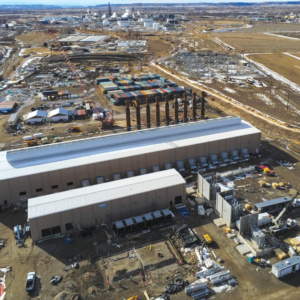Friends & Company 406 Events, 2103 Hillner Ln, (406) 698-8570, Reynolds, Angela, Service, Billings 59101
Big Bred Customs, 311 Alderson Ave, (850) 387-8014, Parker, Michael, Service, Billings, 59101
Pye-Barker Fire & Safety, 3477 Mountain Pass Rd, (406) 245-4946, Ortiz, Shantel, Service, Billings, 59102,
PO Box 12487, Ogden UT, 84412
Fit4mom-Billings, 266 Nantucket CT, (406) 534-9224, Patterson, Megan, Service, Billings, 59102
Crusades Construction, 541 Woodland Rd, (406) 850-2552, Machler, Michael, General Contractors, Billings,59101, P.O. Box 653, Billings, 59103
Stockman Bank (Grand), 1405 Grand Ave, (406) 371-8100, Tucker, Steve, Bank/Loan Agencies, Billings, 59102, PO Box 22069, Billings, 59104
TF Contracting, 803 Siesta Ave, (406) 672-0980, Frasca, Trenton, General Contractors, Billings, 59105
Premier Asphalt Systems, 3970 Avenue D, (406) 794-9443, Donahue, Dylan, Service, Billings, 59102, 3907 Palisades Park Drive, Billings, 59102
Armor Aesthetics LLC, 2701 1st Ave N Fl 2 Ste B, (406) 698-8616, Jaeger, Jennifer, Service, Billings, 59101, 3303 38th St W, Billings, 59102
Beautiful Directions Counseling, 100 N 27th St Ste 205, (406) 927-4838, Watt, Alison, Service, Billings, 59101
Synergy Electric Solutions Inc, 1 N Landmark Ln Ste 1, (208) 228-5535, Jones, Amy, Electrical Contractors, Rigby, ID, 83442
Rocky Mountain Windows and Doors, 131 Moore Ln Unit A, (406) 259-4898, Fornshell/Hannesson, Ethan/Christian, Retail Sales, Billings, 59101
Pulse Training, 1547 41st St W Ste 3, (406) 600-2881, Reinhardt, Sommer, Service, Billings, 59106, 40 Heatherwood Ln, Billings, 59106
Auto Elite Detailing, 1195 Siesta Ave, (406) 661-6851, Gorman, Alec, Service, Billings, 59105
Billings Ride Co.88 LLC, 81 SW Roundhouse Loop, (406) 380-1480, Mairs, Christopher, Service, Lewistown, 59457
Lora Loduca Professional Counseling PLLC, 1720 Tanner Ln, (406) 788-3383, Loduca, Lora, Service, Billings, 59102
Aesthetic Creative Collective, 1707 Walter Creek Blvd, (406) 671-3048, Althoff, Gabrielle, Service, Billings, 59101
Phoenix Reborn Wellness LLC, 1732 Wicks Ln, (406) 200-8552. Jones CNM, APRN, Megan, Service, Billings, 59105, 1302 24th St West #250, Billings, 59102
Lennox AES Holdings LLC, 2171 Al Hwy 229, (334) 252-0380, Fowler, Michael, Service, Tallassee, AL, 36078
Dax Remodeling & Real Estate Investing LLC, 127 N Higgins Ave Ste 307d 1435, (406) 598-3244, Bottenhagen, Estefany, General Contractors, Missoula, 59802
Modern Outlaws Construction, 3 Attika St N, (406) 696-6352, Van Valin, Mathew, General Contractors, Billings, 59105
Mace Construction of Billings, 317 Alderson Ave, (406) 839-0476, Mace, Tyrel Colburn, General Contractors, Billings, 59101
J & S Drywall Construction, 3701 Sagehill Rd, (406) 702-0396, Strobel, Jerry, Service, Billings, 59101
Great Dane Construction, 410 S Spruce Street, (701) 570-3644, Bennett, Douglas, General Contractors, Townsend, MT, 59644
Limmer Roofing Inc, 5590 W Yellowstone, (307) 237-4189, Limmer, Terryl, Roofing Contractors, Casper, WY, 82604, PO Box 1496, Mills, WY, 82644
Marx Mini Dump Truck Service, 7122 Helfrick Rd, (406) 850-1079, Whisler, Marcus, Service, Billings, 59101
Be The Light Cleaning LLC, 1241 Matador Ave, (406) 679-2677, O’neil/Heiliger, Brittney/Reese, Service, Billings, 59105
Darkness and Joy Productions, 3407 1st Ave N Apt 6, (323) 919-7692, Soriano, Holly, Service, Billings, 59101
Fortune Bookkeeping, 1221 Matador Ave, (406) 697-5177, Warren, John, Service, Billings, 59105, 1633 Main St, Ste A Pmb 352, Billings, 59105
Overkill Junk Removal, 1739 Oxbow Cir, (406) 561-5143, Lane, Brayden, Service, Billings, 59105, 4409 Ducks Way Unit 6, Billings, 59106
Red Fijian Studios, 30 34th St W #206, Murphy, Elijah, Retail Sales, Billings, 59102
Glen Brothers Construction LLC, 904 S 31st St, (406) 927-2513, Glen, Wesley, General Contractors, Billings, 59101
Pedro Building Sheds, 2121 Main St, (509) 346-8106, Hernandez, Pedro, Service, Billings, 59105
Lil Don Luis, 3113 7th Ave S, (406) 694-8989, Salazar/Piseno, Carmen/Debra, Restaurants, Billings, 59101
Chipman Properties LLC, 2420 2nd Ave N, (406) 253-3995, Chipman, Joel, Real Estate Rental, Billings, 59101, 217 Clark Ave, Billings, 59101
The Horse Shuttle Trailer Rental and Hauling LLC, 809 Yellowstone Ave, (307) 277-9272, Pace, Christie R, Office Only, Billings, 59101
Certifix Live Scan and Postscan Mail, 848 Main St B1, (657) 295-6373, Lopez, Denize, Service, Billings, 59105, 1950 W Corporate Way, Anaheim, CA, 92801
Kickin’ Kones, 2938 Arnold Palmer Dr, (406) 860-0741, Jones, Shaun, Restaurants, Billings, 59106
Core-Mark Us, LLC, 4007 N Industrial Park 1st St, (509) 535-9768, Merrill, Becky, Distributors, Spokane Valley, WA, 99216
Yellowstone Aikikai LLC, 2702 Minnesota Ave, (406) 690-4230, Apa, Terry, Service, Billings, 59101, 1101 Clark Ave, Billings, 59102
Actualized Envisions LLC, 629 1/2 St John’s Ave, (406) 226-2583, Swisher/Brien, Briona/Michael, General Contractors, Billings, 59101, 1001 S. Main Street Ste 600, Kalispell, 59901
Billings Property Maintenance LLC, 510 Pemberton Ln, (406) 606-4400, Reiter, Brandon, Service, Billings, 59105 PO Box 23311, Billings, 59104
Da Main Squeeze, 155 River Rd B, (406) 953-8831, Bird, Tara, Restaurants, Crow Agency, 59022, PO Box 842, Crow Agency, 59022
Magic Joe’s Painting LLC, 212 E 1st Street, (406) 671-5977, Edwards, Joseph, Service, Laurel, 59044
In Demand Services LLC, 3425 Pebble Brook Dr, (406) 671-1029, Wilder Iii, Hiram B, Service, Billings, 59101
Frenchytat, 711 Central Ave Suite 225, (406) 696-9486, France, Eric, Service, Billings, 59101
Spence Construction & Renovations, 30 Three Forks Way, (406) 331-0280, Spence, Alexander, General Contractors, Roundup, 59072
Nile Painting Services 3303 Prestwick Rd, (406) 351-1882, Nile, Chris, Service, Billings, 59101
EZ Lawncare and Services, 215 Calhoun Ln Lot 33, (406) 647-3993, Jenson, Arlie, Service, Billings, 59101
Superior Gutter Guard, 805 1/2 Broadwater Ave, (406) 281-2228, Dowd, Matthew, Service, Billings, 59101
Grit N Grind Coffee, 510 Pemberton Ln, (406) 647-1002, Gritten, Brittney, Restaurants, Billings, 59105, 6103 Johanns Medow Ln, Billings, 59101
Houser Plumbing LLC, 5115 Leawood Dr, (406) 690-0548, House, Jeffrey, Plumbing Contractors, Billing, 59105
K. Bryson Business Solutions, 2121 Custer Ave, (406) 371-2182, Bryson, Kelsey, Service, Billings, 59102
Batter Babe Co, 115 Foster Ln, (406) 894-9123, Gould, Brittany, Retail Sales, Billings, 59101
Straight Outta Montana Prep N Ship, 3604 Mammoth Cave Dr, (702) 738-3569, Bryant, Melanie, Service, Billings, 59102
Kkaufmanbookkeeping, 4185 Ryan Ave, (406) 580-1310, Kaufman, Kirsten, Service, Billings, 59101
New Vision Thrift Store, 1108 Broadwater Ave, (307) 333-6545, Beeson, Jana, Antique & Second Hand Stores, Billings, 59102, PO Box 2635, Casper, WY, 82602
Sacred Life LLC, 4605 Bowman Dr, (406) 647-0462, Erickson, Gavin & Amanda, Service, Billings, 59101
Yellowstone Pump & Irrigation, LLC, 2424 Minnesota Ave, (406) 245-6139, Santiago, Tessa, Retail Sales, Billings, 59101
Supreme Roofing Done Right LLC, 10775 E 51st, (303) 792-0051, Portillo, Shar, Roofing Contractors, Denver, CO, 80239
Full Moon Construction LLC, 1710 Robson Lane, (406) 598-0539, Wilks, Perry, General Contractors, Huntley, 59037, 1131 Jordan Circle, Billings, 59105
Construction Solutions of MT Inc, 2715 Arvin Rd, (406) 591-1785, Day, Alisha, General Contractors, Billings, 59102
Heaven Sent Senior Care, PO Box 52, (406) 647-4485, Wipf, Anycia, Service, Shepherd, 59079
European Baked Delights LLC, 2542 Riveroaks Dr, (406) 970-0538, Hert, Chad & Elena-Maria, Restaurants, Billings, 59105
Parnell Holdings LLC, 505 Parkhill Dr, (360) 472-0200, Parnell, Graye, Real Estate Rental, Billings, 59102, 4825 W Palo Verde Ln, Boise, ID, 83703
Do It All Drywall, 630 Wild Rose Ave, (406) 855-9559, Lave, Damien, Service, Billings, 59101
Grapes & Grain Inc. dba Madhouse Bar & Grill, 926 Grand Ave, (406) 534-4822, Restaurants, Billings, 59102, 2001 Rosebud Dr Ste C, Billings, 59102
Starbucks Corporation (Henry Chapple), 425 Henry Chapple St, (206) 594-7273, Brewster Wilsey, Bethany, Restaurants, Billings, 59106, PO Box 34442 Tax-2, Seattle, WA, 98124
Dunning Gutters LLC, 3621 Lynette Ln, (406) 898-7076, Dunning, Zachary, Service, Huntley, 59037
Peak Heating And Cooling LLC, 4234 Stone St, (406) 234-2355, Hill, Austin, Service, Billings, 59101
Shark Excavation LLC, 6947 Brave Lookout, (406) 370-3215, Dennison, Travis, General Contractors, Shepherd, 59079, C/O Marlow Accounting, Billings, 59102
Cine Billings, 109 N 30th St, (406) 534-1128, Blakeslee, Matt, Theaters, Billings, 59101
Homesteads Investments LLC, 232 Obert Rd, (406) 698-5364, Harvey, Leah, Real Estate Rental, 59070, PO Box 130, Roberts, 59070
Shark Wildland Fire Division LLC, 6947 Brave Lookout, (406) 370-3215, Dennison, Travis, Service, Shepherd, 59079, C/O Marlow Accounting, Billings, 59102
Classsy & Sassy Coffee LLC, 1212 Grand Ave, (406) 370-1752, Dennison, Cassandra, Restaurants, Billings, C/O Marlow Accounting, Billings, 59102



